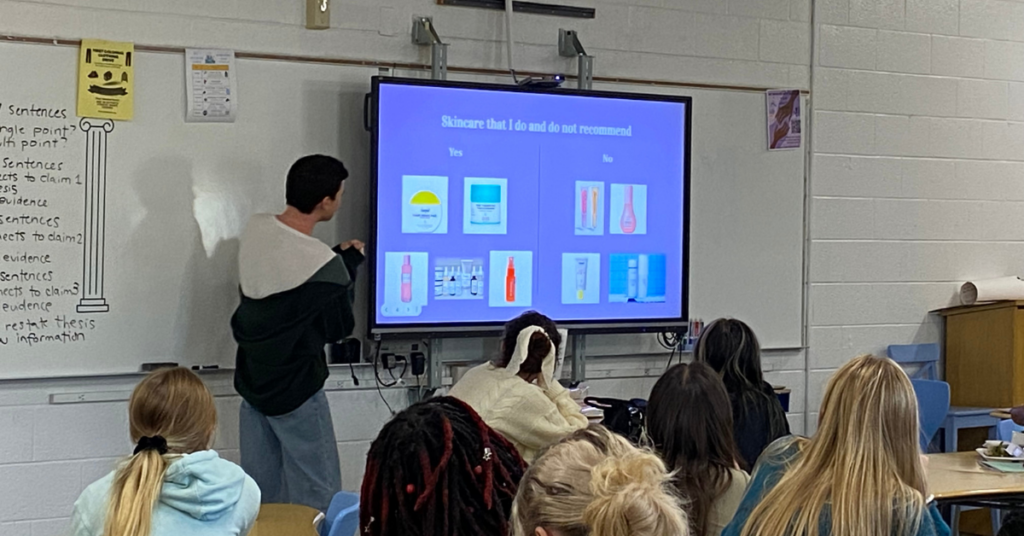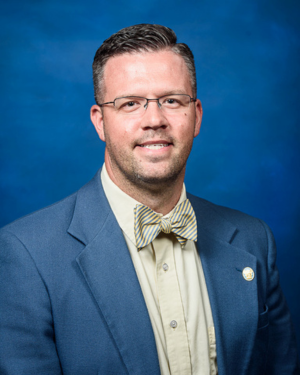Every year before school begins at First Colonial High School in Virginia Beach, VA, we review our school improvement plan, including elements like on-time graduation rate, numeracy and literacy scores, and chronic absenteeism. As with many schools, since the pandemic, our chronic absenteeism rate has steadily increased, and we are also combatting a significant increase in mental, social, and emotional health issues in our school.
One new thing we learned from student surveys this school year is that, although students believe our staff care for their well-being and that our school is a welcoming place, many of them don’t understand how the curriculum relates to their postsecondary goals. More importantly, many of our students feel they don’t have an opportunity to explore how their work in school might connect to what they want to do after high school.
Those results gave rise to what we call “Thrive Thursday.” It takes place during “One Lunch,” where all 1,500 of our students share the same 40-minute lunch period every day. The idea is to use some of that time to let students explore a wide variety of interests.
At the start of the year, Thrive sessions were organized by two members of our administrative team, Melissa Disher and Angelique Phillips, who promoted sessions designed and led by teachers. Teachers focused on their passions outside of the classroom, ranging from crime scene investigations to photojournalism.
As Thrive evolved, we also reached out to community members to lead sessions. They exposed students to skills like auto mechanic work or home building and basic construction. Our aim was to combat chronic absenteeism by enticing students with sessions that related to their interests—sessions that created deeper connections with their teachers, and sessions that were just fun, engaging, and a place for students to disconnect from the daily hustle of the school day. The results of Thrive Thursday were far better than we had anticipated.
We also decided to expand the offerings by incorporating student voice, including student-run sessions. Not surprisingly, those have turned out to be some of our most popular offerings. One student, for example, shared how he has monetized his TikTok account by doing makeup reviews. Companies now send him makeup to review, based on how they work for different skin shades and gender, and he’s developed a big following.

As the program continues to grow and evolve, we hold one thing constant: collecting feedback from our students to ensure we honor their voice in the process. We want them to know that their opinion about how we do things at our school matters. So, if students say they want to try something on Thrive Thursday, we figure out how to make it happen.
Our administrative team has learned some clear lessons from our experience with Thrive Thursday:
- Students will rise to the expectations of the school community.
- The community is more than willing to come into the building to work with students: You just have to ask.
- Data-driven decision-making is not a buzz word, and it is not just for academic purposes; data-driven decisions are those that best support the needs of our students.
- Students want and need to be heard. They need time to make real connections with faculty, staff, and community members in a space that is welcoming and safe.
- Lastly, there is no reason to hesitate to begin a new initiative that puts students’ needs first.
Thrive Thursday is not just a day of the week at our school; Thrive Thursday is a state of mind.

